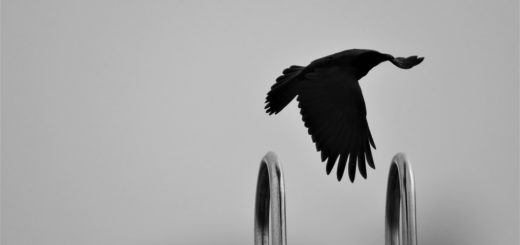The Smugness of Ignorance
When you encounter a theoretical or artistic work that has been highly regarded by advanced societies since before you were born, perhaps even before your great-great-grandparents were born, the reasonable point of view is to assume that the work must have some sort of merit, perhaps even greatness, that justifies its longevity and enduring admiration. This is not to say that you must unreflectingly love it, or even that you will ultimately, upon good-faith examination and deep experience, judge it favorably at all. But at least until one has so examined the work and its wider context, giving it the benefit of the doubt and an honest hearing indicates a mind rational enough to admit its own lack of absolute certainty, and humble enough in the presence of civilization’s long echo not to be so presumptuous as to dismiss out of hand, let alone to summarily condemn, a work of sufficient substance to have left a salutary mark on the souls of past human beings, so much so that those earlier humans actively preserved the work for many generations, or centuries.
The willingness to approach that which is strange and out of step with the times, not with self-satisfied dismissiveness or moral indignation, but with curiosity and the presumption of uncertainty — the genuine open-mindedness that refuses to judge where it does not know, which in turn entails the spiritual independence that never mistakes familiarity or fashion for knowledge — is the most indispensable characteristic of a person who thinks, qua thinker. But this open-mindedness is neither an innate characteristic of the soul nor an easily acquired one, for the prejudices and blind faiths of youth are not shortcomings or flaws, but rather necessary features of the early stages of human development, answering to youth’s underdeveloped rationality and intrinsic emotional dependence on the responses and guidance of those in one’s immediate surroundings. Those prejudices and faiths, however, if they are not to harden into the self-protective smugness of adult ignorance, must gradually give way to rational reflection, the acknowledgment of unwisdom, and an earnest search for well-founded truths to replace the comfortingly rigid certitudes and platitudes of one’s time and place, a search that will necessarily take the soul far from its early moorings, which by definition means out into an intellectual world infinitely wider and more challenging than the cozy assurances of youth. This wider exploration (and self-exploration) requires a more mature kind of assurance, namely the confidence to look at strange alternatives without fear or prejudice, and to face challenging or disturbing intellectual possibilities without reflexively recoiling into the safety of the familiar.
The failure to achieve the explorer’s confidence, the confidence of unwisdom — or to say this another way, the failure to reject the smugness of ignorance — results in…ordinary life as it is lived by most people today. A reasonably organized society, with some inkling of freedom in its heart, might at least preserve a way out of this spiritual condition for those intrepid enough to seek it, a small but bright window for those who might be enticed to take a look outside. A society with totalitarian tendencies, whether in its instincts or in its institutions (the former will soon engender the latter), will strive to make the smugness of ignorance universal and inescapable, by boarding up those windows, which in practice means depriving the society of any individuals or institutions that might direct the curious and energetic to look toward a world beyond themselves, i.e., beyond the familiar, current, and comforting.
In our modern world, and above all in the democratic part of our world, the university was, for many generations, that small window to the outside. It no longer serves this vital and noble function, but rather has been in every way reconfigured to serve the aims of irrational power and the universal blindness which irrational power craves. “Higher education” today actively promotes the infantile arrogance and the indignant refusal to look typical of the most profoundly ignorant, namely those who do not merely neglect to seek wisdom from the past, but whose artificially darkened rooms have been deprived of any glimmer of awareness that there might be something to learn, something adventurous, something beautiful, beckoning to them from beyond the Now — let alone the awareness that clinging protectively to the postures, pleasures, and pieties of the present insures that nothing can be learned, no adventure embarked upon, no beauty revealed.


